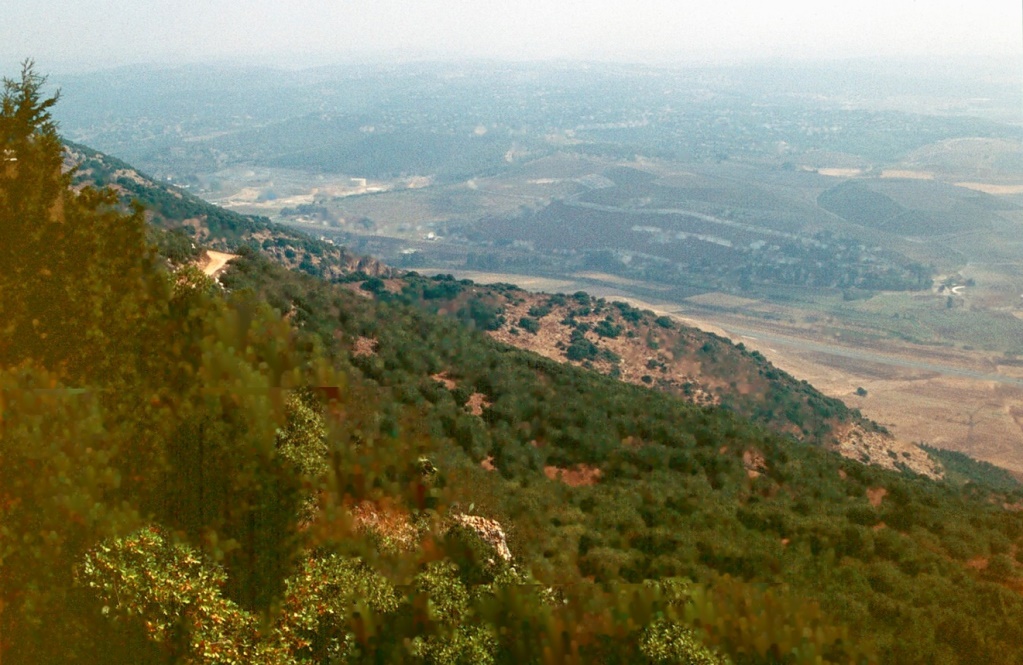21 Oct. Assyria is conquered by the Babylonians
“While Josiah was king, Neco king of Egypt went to help the king of Assyria at the Euphrates River. King Josiah marched out to fight against Neco, but at Megiddo, Neco faced him and killed him.”
“Josiah’s servants carried his body in a chariot from Megiddo to Jerusalem and buried him in his own grave. Then the people of Judah chose Josiah’s son Jehoahaz and poured olive oil on him to make him king in his father’s place.”
“Jehoahaz was 23 years old when he became king, and he was king in Jerusalem for three months. His mother’s name was Hamutal, who was the daughter of Jeremiah from Libnah. Jehoahaz did what the LORD said was wrong, just as his ancestors had done.”
“King Neco took Jehoahaz prisoner at Riblah in the land of Hamath so that Jehoahaz could not rule in Jerusalem. Neco made the people of Judah pay about 3.5 tonnes of silver and about 35 kilogrammes of gold.”
“King Neco made Josiah’s son Eliakim the king in place of Josiah his father. Then Neco changed Eliakim’s name to Jehoiakim. But Neco took Jehoahaz to Egypt, where he died. Jehoiakim gave King Neco the silver and gold he demanded. Jehoiakim taxed the land and took silver and gold from the people of the land to give to King Neco. Each person had to pay his share.”
“Jehoiakim was 25 years old when he became king, and he was king in Jerusalem for eleven years. His mother’s name was Zebidah daughter of Pedaiah, who was from Rumah. Jehoiakim did what the LORD said was wrong, just as his ancestors had done.”
(2 Kings 23:29-37)

The Assyrians and the Babylonians had been at war for many years. Matters come to a head when, in 612BC, the Babylonians conquered Nineveh, the capital of Assyria.
Although this momentous event is not recorded in 2 Kings, the prophet Nahum wrote about the destruction of Nineveh by the Babylonians (see Nahum 3:1-19).The fall of Assyria was to have catastrophic repercussions for the future of Judah.
Following the defeat of the Assyrians at the hands of the Babylonians in 612BC, Ashuruballit III, the last King of Assyria, called on Egypt to support him against the rising superpower Babylon. Perhaps realising the threat of Babylon to his own kingdom, Pharaoh Neco (Necho II), the recently crowned King of Egypt, led his army along the Way of the Sea to assist the King of Assyria in a final showdown against the Babylonians.
King Josiah of Judah foolishly tried to bar the Egyptian king’s way at Megiddo and was killed at the Battle of Megiddo in 610BC. The delay resulted in Assyria being soundly defeated by the Babylonians. Pharaoh Neco returned to Egypt, deposing Josiah's son Jehoahaz en route, and installing his brother Jehoiakim (610-598BC) as a vassal king in his place, to act as a buffer against Babylon.
Following the intervention of Egyptian forces, the Babylonians were determined to get their revenge on Egypt, and in 606BC, Pharaoh Neco was defeated by King Nebuchadnezzar of Babylon at the Battle of Carchemish (KarkemiÅŸ, near Barak, on the southern border of Turkey) (see Jeremiah 46:2). Nothing then stood in the way of Babylon claiming all the land between the Euphrates and the Nile.
The photo shows the Vale of Jezreel, near Megiddo, where King Josiah died.
You can see a photo of the excavation of Carchemish in 1910 @ https://www.thebiblejourney.org/biblejourney2/33-judah-after-the-fall-of-israel/assyria-is-conquered-by-the-babylonians/
